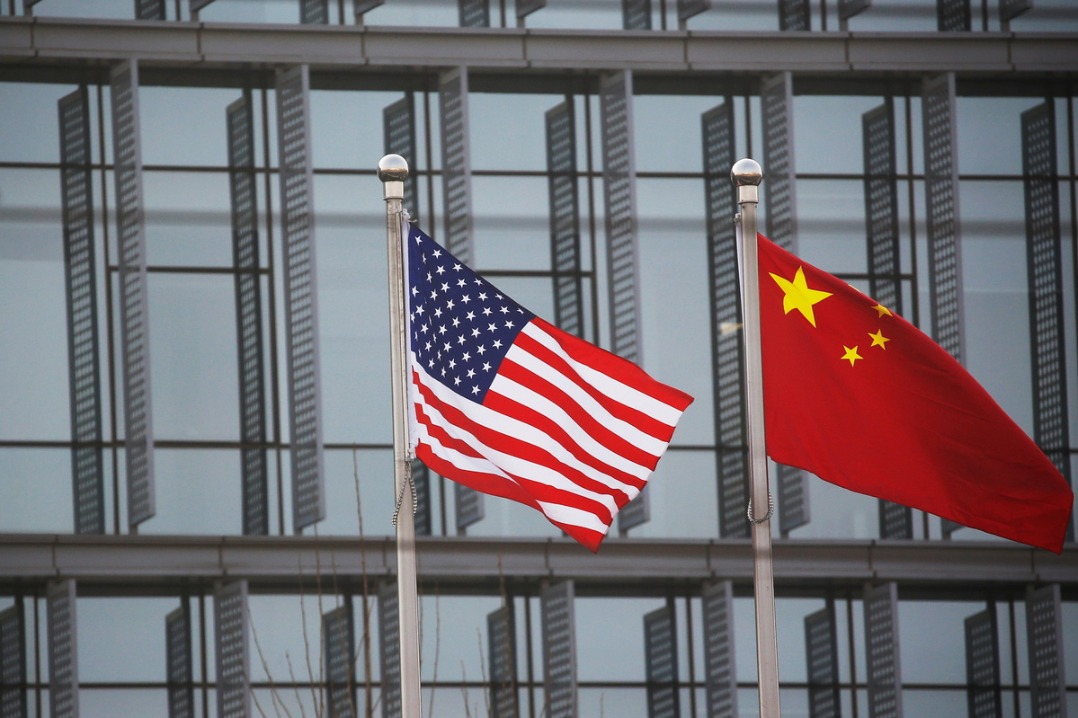US appropriately handling Taiwan question might be watershed moment for relationship: China Daily editorial

In response to the United States' irresponsible moves, China has sanctioned the US companies providing weapons and associated services to China's Taiwan island in the multi-billion-dollar deals Washington has approved in recent months.
The Chinese Foreign Ministry announced on Thursday a series of countermeasures against 13 US arms, artificial intelligence, drone and telecommunications companies and six senior executives of five US enterprises in these sectors, in accordance with the Anti-Foreign Sanctions Law.
Starting from Thursday, Beijing froze these entities' property in China and prohibited organizations and individuals in China from engaging in business transactions, cooperation and other activities with them. Also, visas will not be issued to the individuals concerned, and they will not be allowed to enter China.
Although China is open to foreign businesses and investment, and promotes international economic and trade cooperation, all of the business activities on Chinese territory, including Taiwan island, must follow Chinese laws and regulations. The sanctions are fundamentally different from the baseless sanctions the US imposes on Chinese entities for the purpose of thwarting China's high-tech catch-up, containing China's development and protecting the US' hegemony. Compared with the US' arbitrary sanctions and its suppression of hundreds of Chinese entities, China's measures are a rational, restrained and precise response to the US' moves related to Taiwan.
China's commitment to welcoming US companies and investment remains unchanged. But so too is its commitment to opposing any moves in support of the island's secessionists.
In contrast with Washington's across-the-board China-containment strategy, Beijing has prudently demarcated the line between foreign parties' normal economic and technological interactions with Taiwan and those that challenge the one-China principle. The US companies are well aware that the arms sales to Taiwan violate the one-China principle and the three Sino-US joint communiques, and their products and services threaten regional peace and stability.
The sanctions announced on Thursday are an acute reminder that the Taiwan question is the core of China's core interests, the foundation of the political foundation of China-US relations, and the primary red line in China-US relations. As the incoming US administration prepares to take office, there is an opportunity for a revaluation of the US' approach to the Taiwan question.
The strategic ambiguity the US has adopted on the Taiwan question might have served the US' interests to some extent during the Cold War and when China didn't have the capacity it has now to keep the US from its doorstep. But if the US persists with trying to exploit the Taiwan question for its own ends, it will find itself caught in an extremely grave dilemma that is entirely avoidable.
It has been a common understanding of Beijing and Washington that the two countries have no reason not to properly resolve their differences in various sectors. A misstep by the US on the Taiwan question would nix that happening in an instant. The US should show some strategic foresight and step back from the minefield it is laying with its provocations on Taiwan.
If it refrains from gravely interfering in China's internal affairs, stops taking actions that threaten China's sovereignty and territorial integrity, and handles the Taiwan question in line with its commitments enshrined in the three joint communiques and other documents of international law, the next US administration could create a watershed moment for the Sino-US relationship, putting it back onto a healthy trajectory.
China's foreign policy, including its policy toward the US, remains stable and continuous. No matter what changes happen in the US, China will always seek to improve and develop Sino-US relations based on the three principles of mutual respect, peaceful coexistence and win-win cooperation.
Despite the ups and downs in Sino-US relations over the past four years, China's goal of pursuing the stable, healthy and sustainable development of the China-US relationship has not changed; its position of firmly safeguarding its sovereignty, security and development interests has not changed; and its desire to continue the traditional friendship between the Chinese and American people has not changed.


































